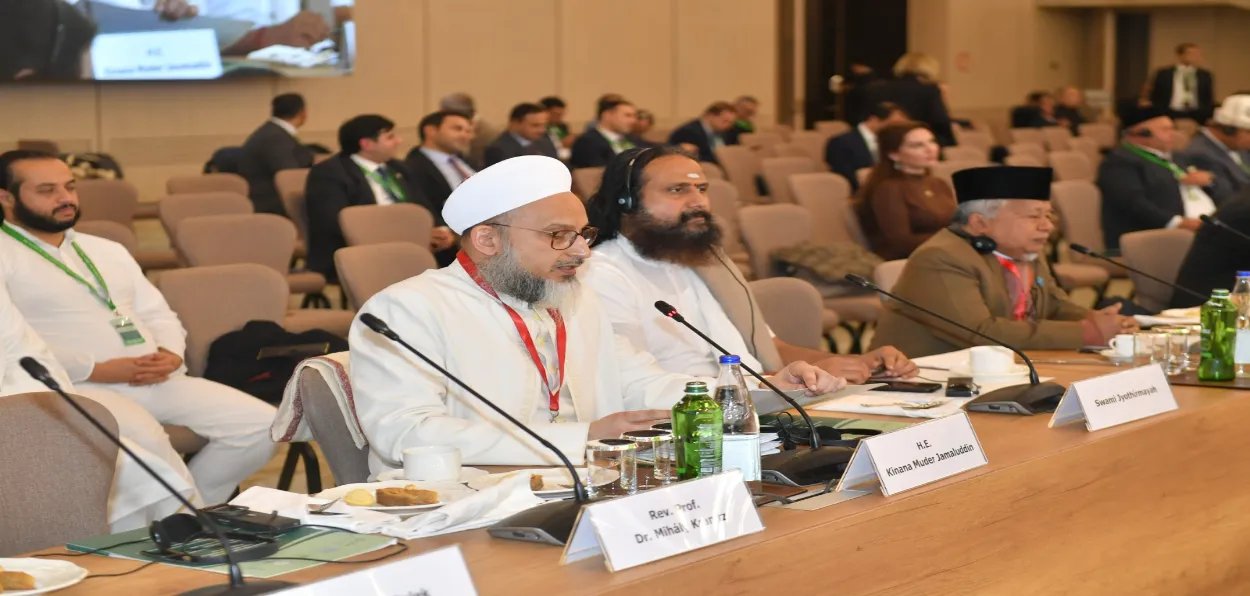
Baku (Azerbaijan)
At least 300 religious leaders from around the world who participated in the “World Religions for a Green Planet” in Azerbaijan’s capital have appealed to states, international, regional, religious, public organizations, and religious leaders to “recognize the sanctity of human life and nature, to respect the values of protecting all living beings and the nature, and to advocate for environmental equality and justice.”
The two-day al Summit of Religious Leaders was organized as part of the 29th session of the Conference of the Parties (COP29) to the United Nations Framework Convention on Climate Change in Baku.
India’s prominent spiritual figure, Swami Jyotirmaya, passionately called upon all religious communities to unite to protect our planet.
Swami Jyotirmaya emphasized the importance of finding solutions for a sustainable future. He stated, “In the future, it is crucial to establish multilateral ties in cultural and economic aspects. Therefore, the unity of religious denominations, exchange of scientific data, and information sharing are vital.”
The summit, which began on 5 November, brought together nearly 300 prominent leaders from various faiths and religions, including heads of prominent religious institutions such as patriarchs, officials from the Vatican and Al-Azhar, and delegates from 55 countries and 30 international organizations, including representatives of foreign governments, high-ranking UN officials.
Among them was a delegation from the Dawoodi Bohra Muslim community, led by Kinana Jamaluddin and Hindu religious leader Swami Jyotirmaya.
In his address, Jamaluddin used the Quranic concept of 'walking softly upon the Earth' as a metaphor for harmonious coexistence with nature. He cited the Prophet Mohammed's teaching that "All of Creation is a family dependent upon Allah. The most beloved of Creation to Him is the one who benefits His family the most."
Building on this principle and the teachings of Syedna Saifuddin regarding our duty towards Earth which is humanity's cherished home, he concluded that our collective actions today create ripples affecting future generations, and when diverse communities work together, they can become a powerful force for environmental change.
Over two days, the summit addressed several critical issues, including religious perspectives and beliefs on the climate crisis, the role of religious and faith organizations in protecting the environment, and building trust through interreligious and inter-civilizational dialogue. It also explored the harmful impact of terrorism, religious and racial intolerance, and wars on the environment, peaceful coexistence, and natural ecosystems.
The Dawoodi Bohra representatives discussed their community's Project Rise activities in tree planting, water conservation, and food and plastic waste management while learning from other faith groups' innovative approaches to sustainable worship spaces and youth environmental education. These exchanges highlighted how different religious communities adapt traditional practices to address modern environmental challenges, enriching the collective understanding of faith-based environmental stewardship.
The summit concluded with adopting the Baku Declaration and the appeal of the religious leaders to the global community to take concrete actions to address the climate crisis and protect the planet.
